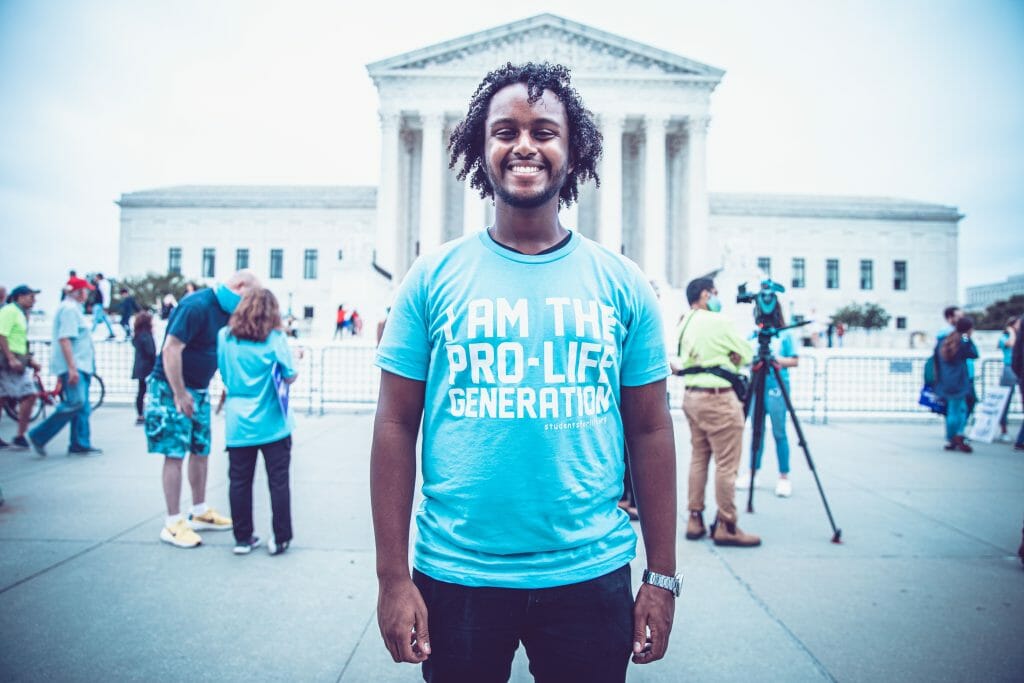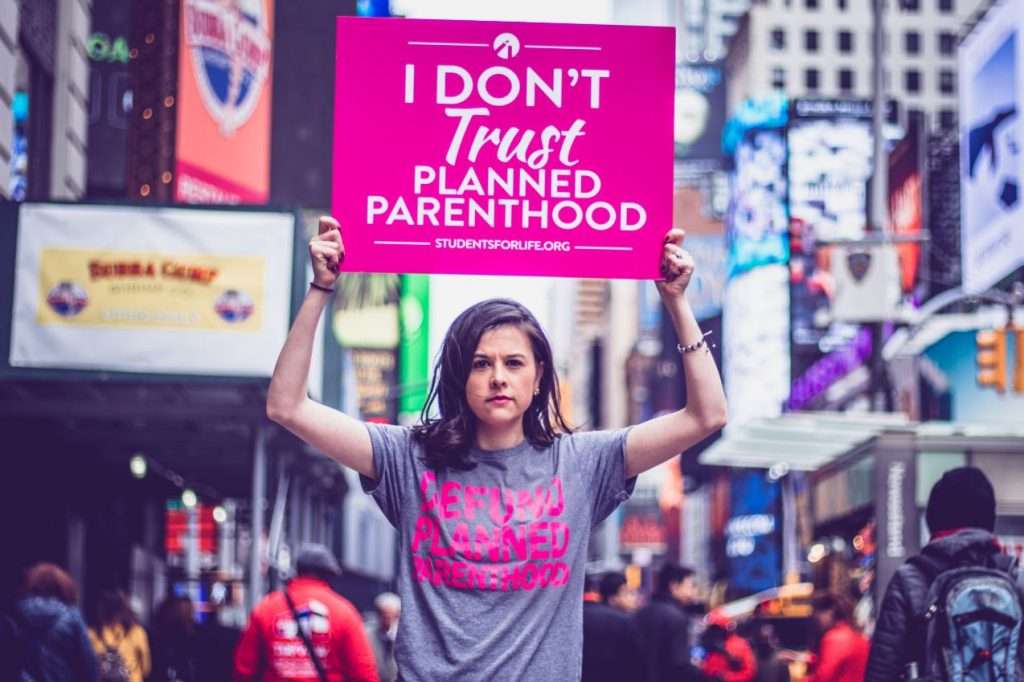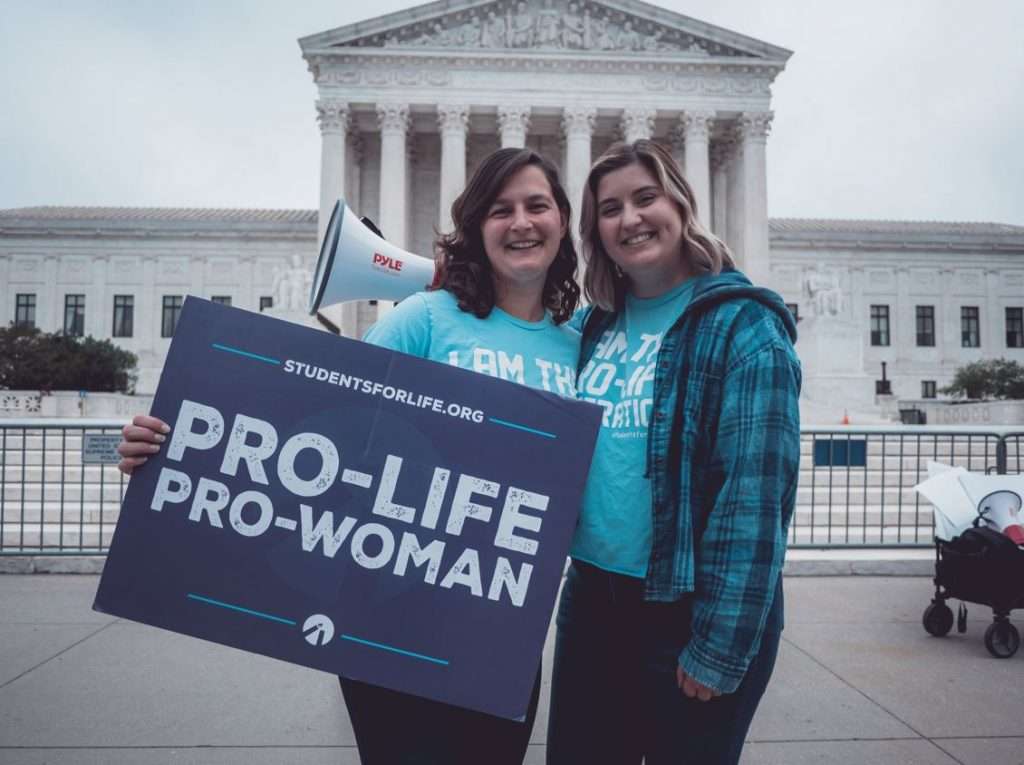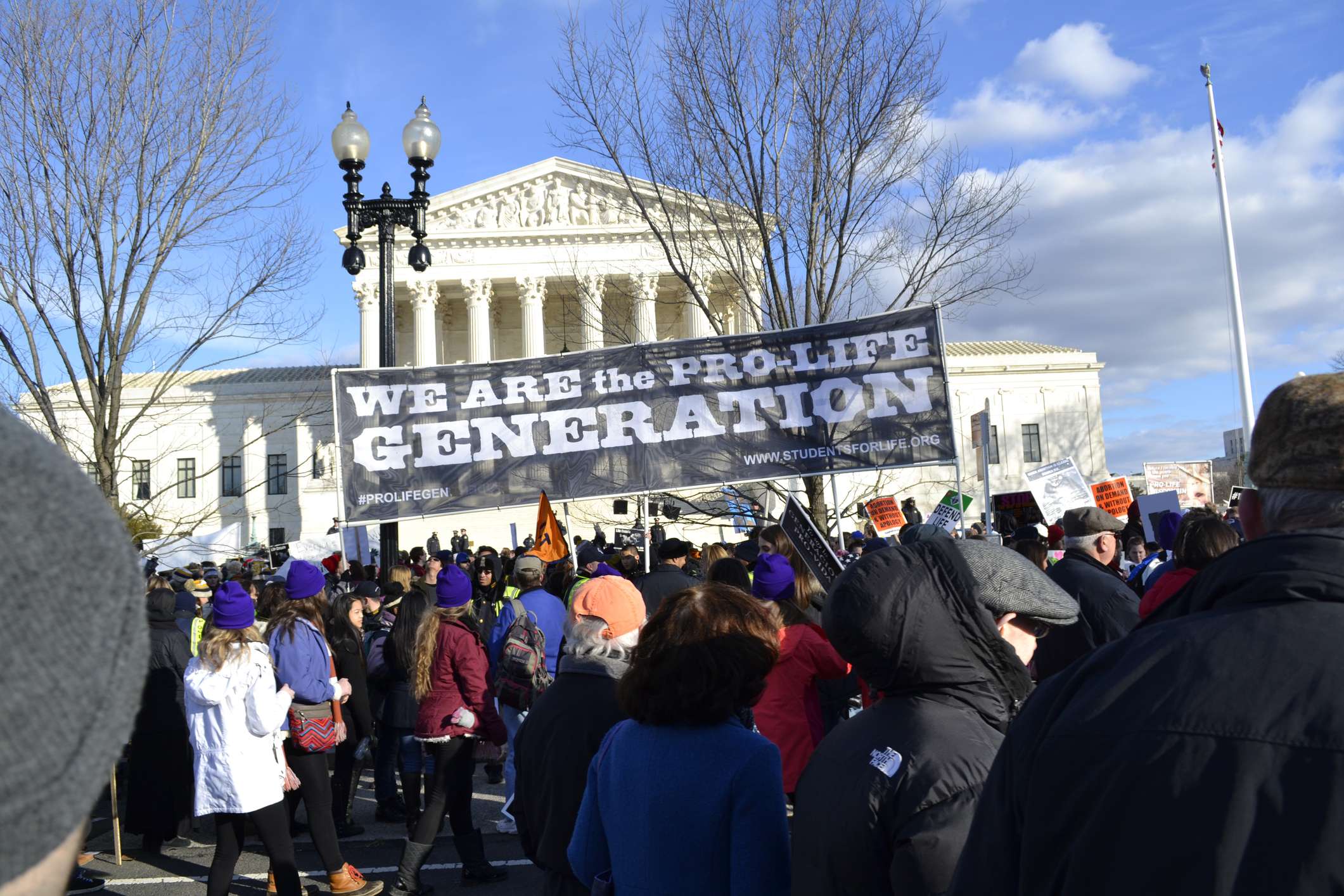

GUEST POST: The leaked Supreme Court draft decision that indicates that Roe v. Wade could be overturned has brought renewed media attention to abortion. Pro-abortion groups, including America’s biggest abortion business Planned Parenthood, have moved away from euphemism and are now outright demanding abortion.
Politico reports talking points from the abortion coalition formerly known as the House Pro-Choice Caucus urging Democrats not to use the word “choice.” The abortion advocates claim “that ‘choice’ is now considered ‘harmful language’ and should be replaced with ‘decision,’ which is ‘helpful language.’”
No longer is the abortion lobby pretending they want “safe, legal, and rare” or even that their concern is with women’s “choice.” It is, and always has been, about abortion. At least now they’re being honest about it.

Reporting on the topic, the Washington Post noted “far-left liberals will say ‘abortion’ every time they talk about the issue, while some Democrats who will face competitive races in 2022 and 2024 — including the president — have rarely used it, relying instead on broader terms such as ‘reproductive freedom’ and ‘a constitutional right.’” Activists groups like ShoutYourAbortion and We Testify have been calling for years for mothers to be “proud” of their abortions and speak openly about ending the lives of preborn children.
Now clamoring for “abortion” is not relegated to the extremes, and some of the biggest names in corporate abortion are calling for politicians to say the word. According to the Washington Post, “leaders at Planned Parenthood and NARAL Pro-Choice America, two of the nation’s largest abortion rights groups, and Emily’s List, which backs candidates favoring abortion rights,” are among those calling for more use of the word “abortion,” especially politicians who receive their financial backing.

Some politicians see what is happening and are resisting. Celinda Lake, one of Biden’s lead pollsters in 2020, told the Washington Post, “Most of these politicians have realized, particularly in more marginal districts, that you should talk much more about the shared value than the medical procedure.”
Grouping “abortion” in with the indeterminate category “reproductive healthcare” ensures that more people are duped into supporting unrestricted elective abortion. Lake said, “If we want to continue growing support in this country for Roe v. Wade, we need a bigger conversation.” By “a bigger conversation,” Lake means a more deceptive presentation. When people find out what Roe actually includes—no restrictions on abortion through all nine months—people do not support it. Only when you misrepresent abortion do people agree to support the killing of defenseless preborn babies. When politicians talk about “abortion” honestly, voters leave.
As Students for Life of America’s Kristi Hamrick told the Washington Times, “They keep acting as though the issue is ‘messaging’ instead of the inhumane nature of their entire enterprise. If your ‘health care’ kills people on purpose, you’re doing it wrong. And if your ‘decision’ is to build a billion-dollar business selling the deaths of children to women in a moment of crisis, your callous barbarism will not be camouflaged by a word change.”

And we have seen this play out in elections. Terry McAuliffe thought talking about abortion would win him votes in a contentious Virginia gubernatorial race. Instead of gaining ground, McAuliffe lost to Glenn Youngkin by a sizeable margin. Students for Life of America President Kristan Hawkins showed that the pro-life issue won Youngkin thousands of votes in a very tight race. Without offering a strong pro-life position, Youngkin took votes from McAuliffe, because McAuliffe made the mistake of being honest.
Thankfully, the money behind Big Abortion candidates refuse to accept the facts. According to the Washington Post, “Mini Timmaraju, the president of NARAL, Alexis McGill Johnson, the president of Planned Parenthood, and Laphonza Butler, the president of Emily’s List, all reject the idea that the word ‘abortion’ could alienate more moderate voters.”
“Voters want to know where their lawmakers stand and elected officials who support abortion access would be wise to make their commitment crystal-clear,” Timmaraju told the Post. “Using euphemisms can fuel stigma and being direct about support for abortion rights is not only the right thing to do, but also politically advantageous.”

McGill Johnson, Planned Parenthood’s president who also lives in a radical abortion echo chamber agreed. “Voters expect candidates to say what they mean, without unnecessary vagueness,” she said.
Planned Parenthood still tries to hide behind the 3 percent myth that elective abortion is only a small portion of the services they offer. Yet, they are finally going public with how much the brand is concerned with keeping abortion legal and unrestricted. McGill Johnson told the Post that Planned Parenthood now uses the term “pro-abortion,” “a drastic change from the group’s rhetoric even a few years ago.”
It may be a drastic change in rhetoric, but this is business as usual for Planned Parenthood, which ends the lives of well over 300,000 preborn babies each year. We know that when pro-abortion politicians talk about abortion directly, they lose votes. All the pro-lifers should jump on board. Want to talk about abortion open and honestly? Yes, let’s.
Share this post
Recent Posts

National Celebrate Life Weekend Dominates D.C.: Just Look at the Coverage
01 Jul 2025
The Pro-Life Generation REACTS: “Big, Beautiful” Budget Bill Vote One Step Closer to Defunding Planned Parenthood & ALL Abortion Vendors
01 Jul 2025
News: FIVE Lawmakers Recognized for Defending Life
30 Jun 2025
